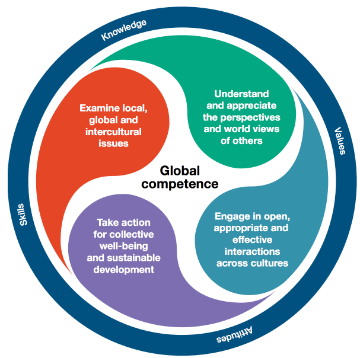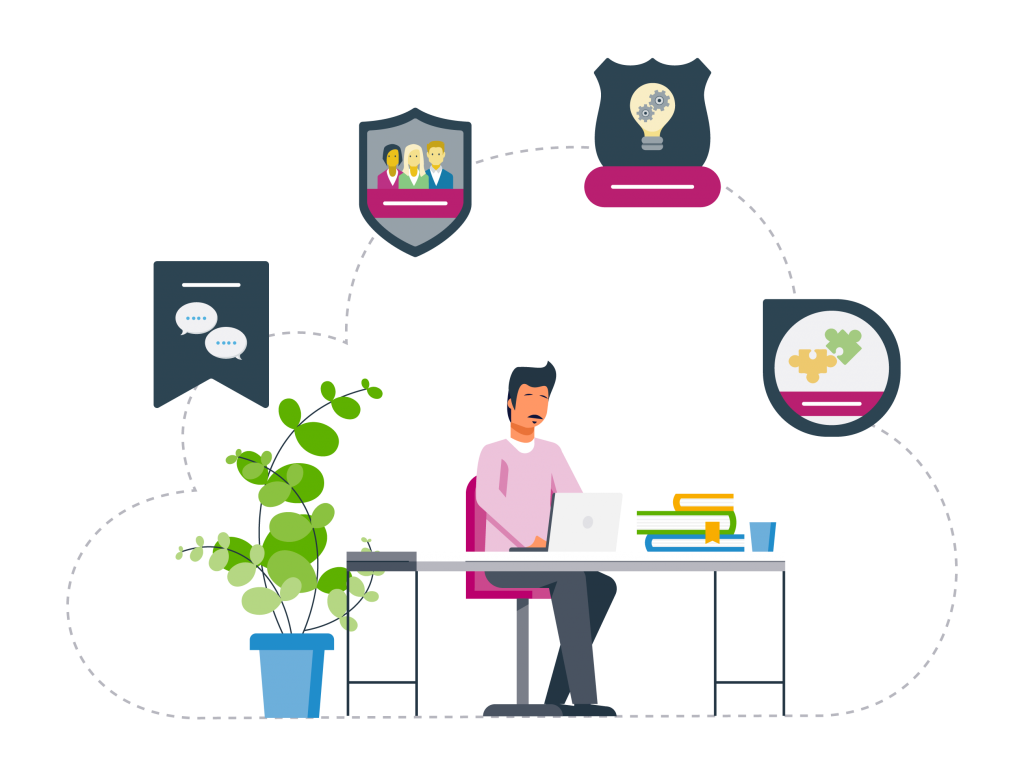The presentation will address the development of teaching and learning competencies for the design and implementation of new virtual and blended modalities of international collaboration in higher education institutions, an objective that is in line with several recent international programs and guidelines.
The COVID-19 pandemic has impressively accelerated the opportunities, tools and spaces for innovation in teaching and learning. During the pandemic, remote learning and working became the new normal, allowing the continuation of academic activities that accelerate the acquisition of digital literacy. Digital skills such as computer-based collaboration, along with a mindset ready to embrace agile working and unified communications, are at the heart of this revolution. Following the drastic decline in physical mobility, virtual exchanges have opened the door to unlimited opportunities for international and transnational cooperation as a strategic practice to increase the proportion of students and academic staff with access to international and intercultural opportunities and to promote the inclusion of students who would not have the chance to participate in physical mobility programs for economic or personal reasons. As increasing the number of students involved in international activities is a current goal of many higher education institutions, it is relevant to equip teachers and staff with competencies to design innovative digital learning activities of international collaboration.

In this panorama, the INVITE Erasmus+ project is developing an interactive online training module that aims to enable higher education teachers and trainers to implement effective international virtual and blended environments, and to promote awareness among higher education staff (including institutional advisors and educational developers) and mechanisms to support, scale up and sustain such programs. The modules will support educators and trainers in the use of specific digital learning environments, digital tools and student-centered, innovative and adaptive methodologies to design and implement effective international virtual and blended projects. The focus is on innovative and interdisciplinary activities involving cooperation between institutions from at least two different countries. The module is open to higher education faculty and staff from all disciplines. The training module will be offered in spring 2024, entirely online.

Open online materials that support teachers in developing competencies for teaching in virtual and blended mobility experiences are needed for educators who are new to these digital practices or who want to improve their skills. This is especially important now that international experiences are more common, often required by universities, and valued by employers.
To meet the needs of virtual and blended programs and to enable the implementation of international modules, higher education institutions are required to rapidly change traditional mobility practices. The online module will be open to university teachers of different disciplines; to meet their interests and enable their collaboration, transversal themes such as problem posing and problem solving will be explored. It will also be available to institutional staff responsible for promoting innovation in teaching and learning, in order to raise awareness of the importance of teacher training and the allocation of appropriate resources (human and financial). Teachers participating in the training module are expected to improve their skills and thus provide a better learning experience for their students. A larger number of qualified teachers and staff would increase the attractiveness of the universities and add value to the educational offer. Students will benefit from well-designed intercultural experiences that would broaden their cultural background.
For those interested in this initiative, the training module will be offered in spring 2024, entirely online. To express their interest in receiving course updates and news, higher education teachers, educators, and staff can fill out the form at the link: https://forms.gle/ATHnA1wJdz4nSa3F8
Those who complete the module will be informed about the registration process for the training module.
Responsible: Marina Marchisio Conte
Institution: Università di Torino
Country: Italia
Email: marina.marchisio@unito.it
Marina Marchisio es delegada del Rector de la Università di Torino para el desarrollo e impulso de las estrategias de Educación Digital de la Universidad, Presidenta de la Escuela Universitaria Interdepartamental de Ciencias Estratégicas (SUISS), Subdirectora de Enseñanza del Departamento de Biotecnología Molecular y Ciencias de la Salud y Coordinadora del Doctorado en Ciencias de la Defensa y la Seguridad de la Università di Torino.
Columbus Association, 2023.
